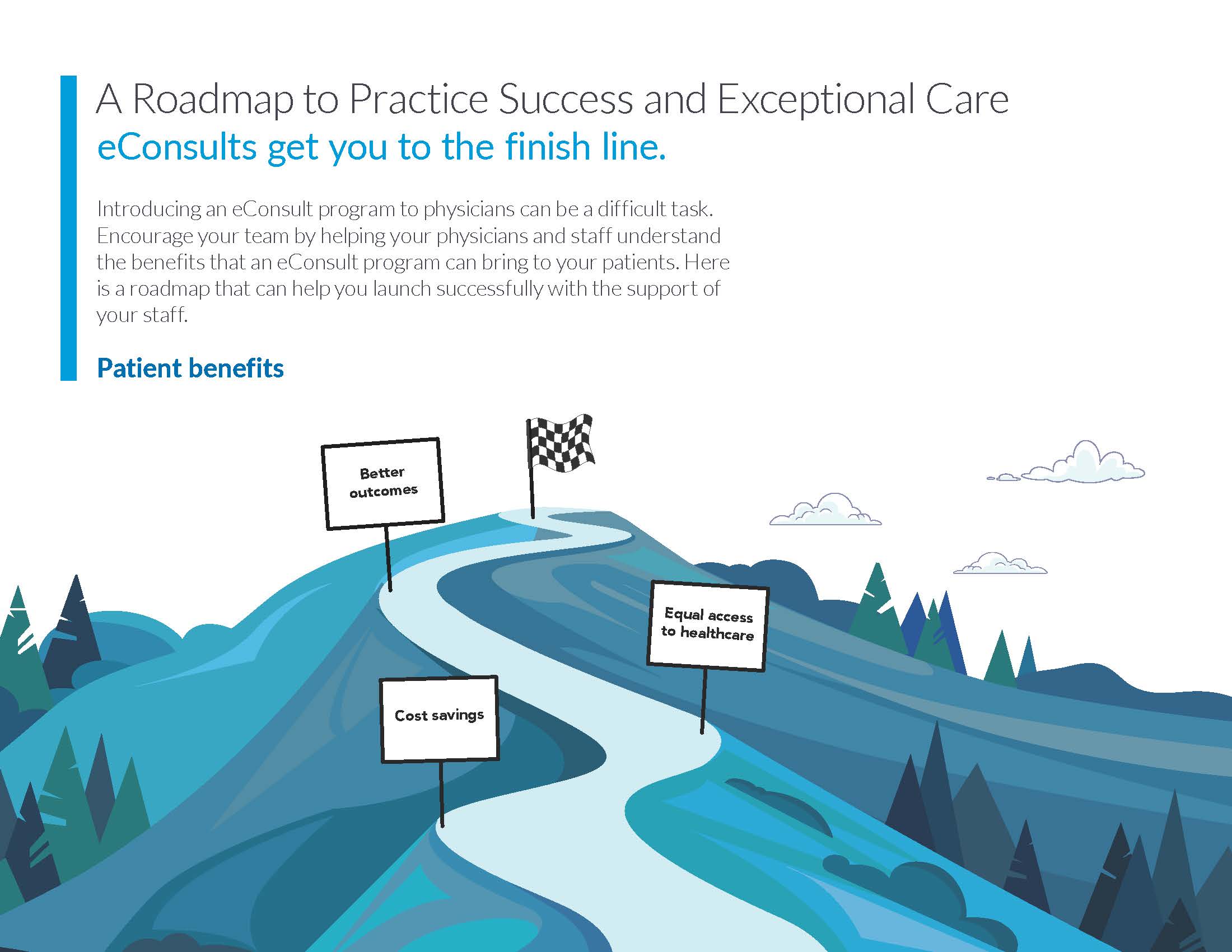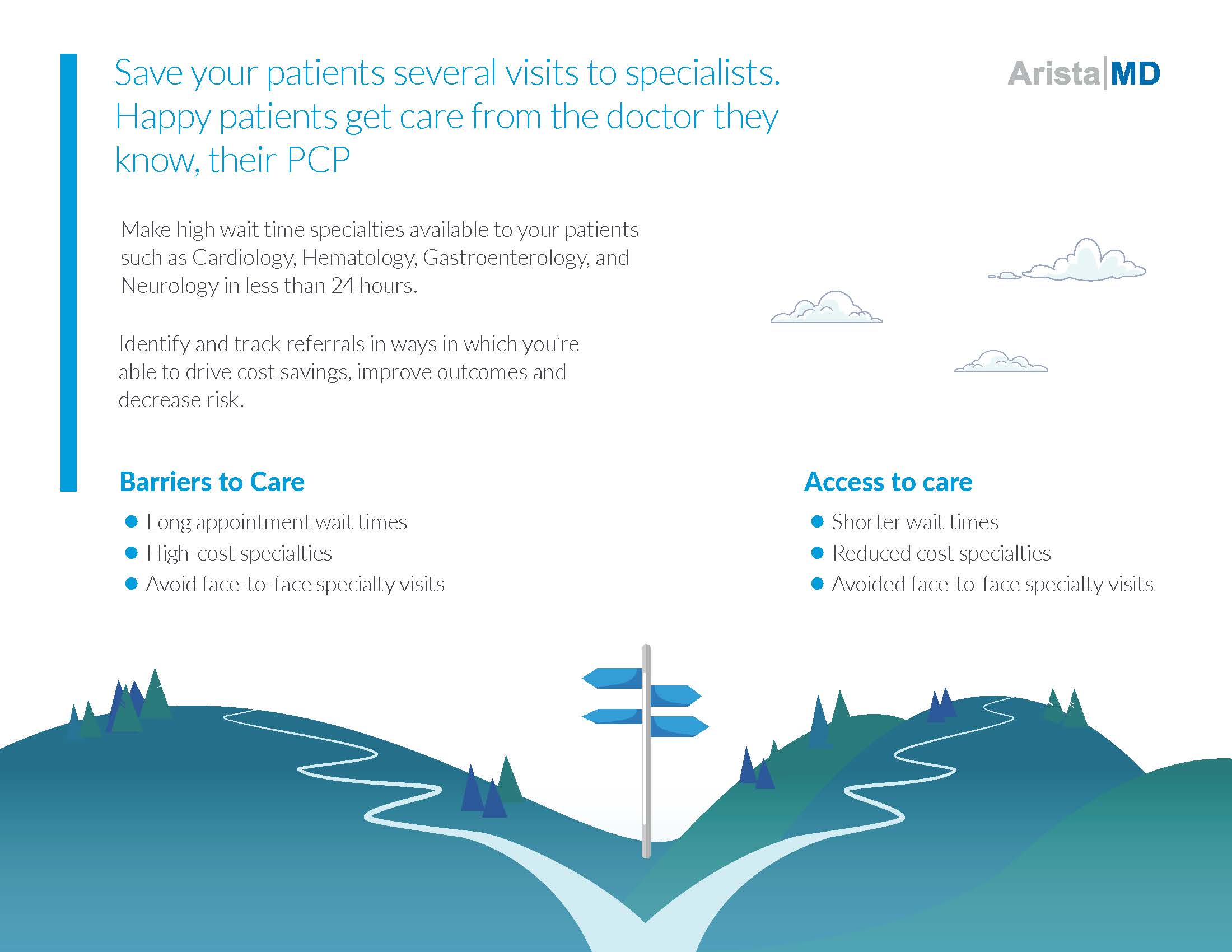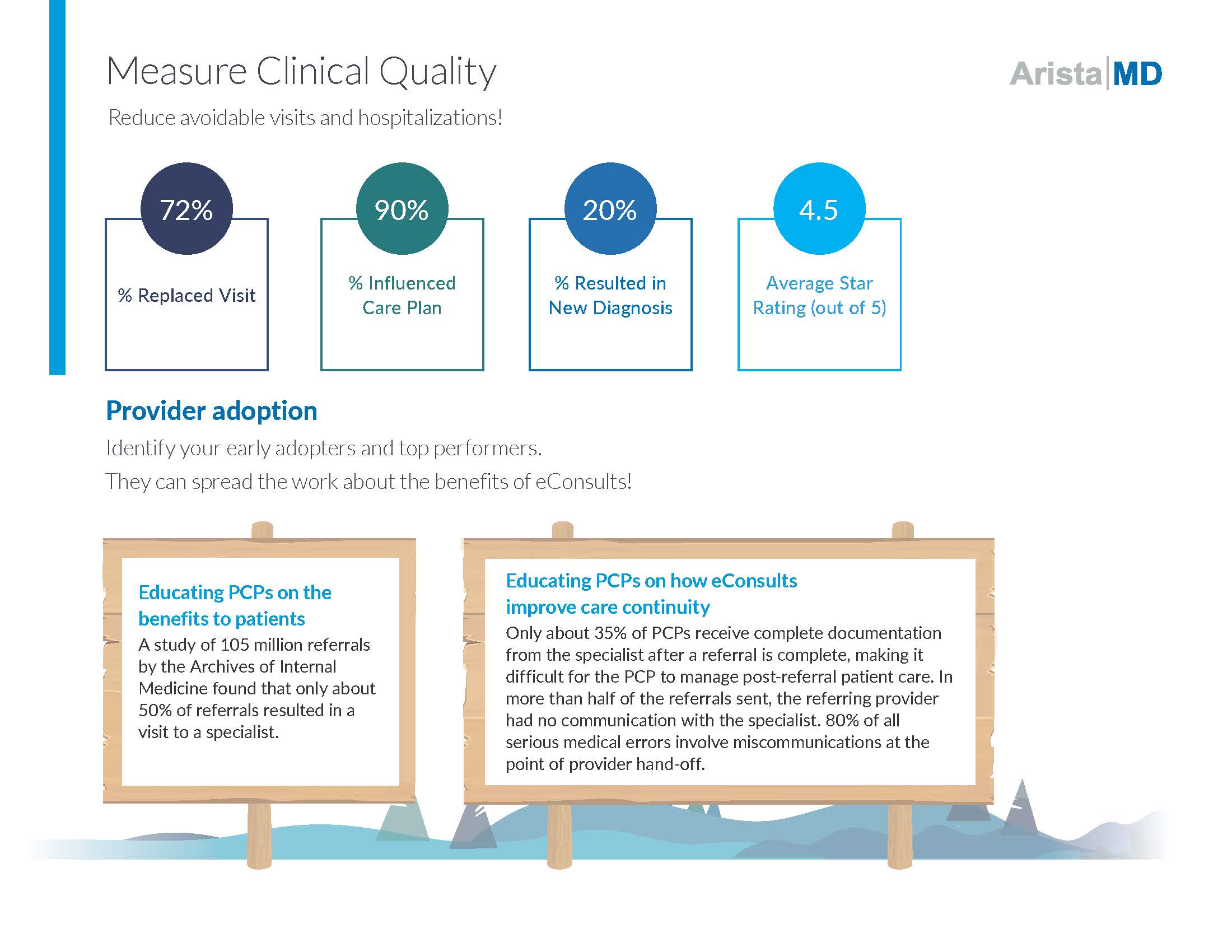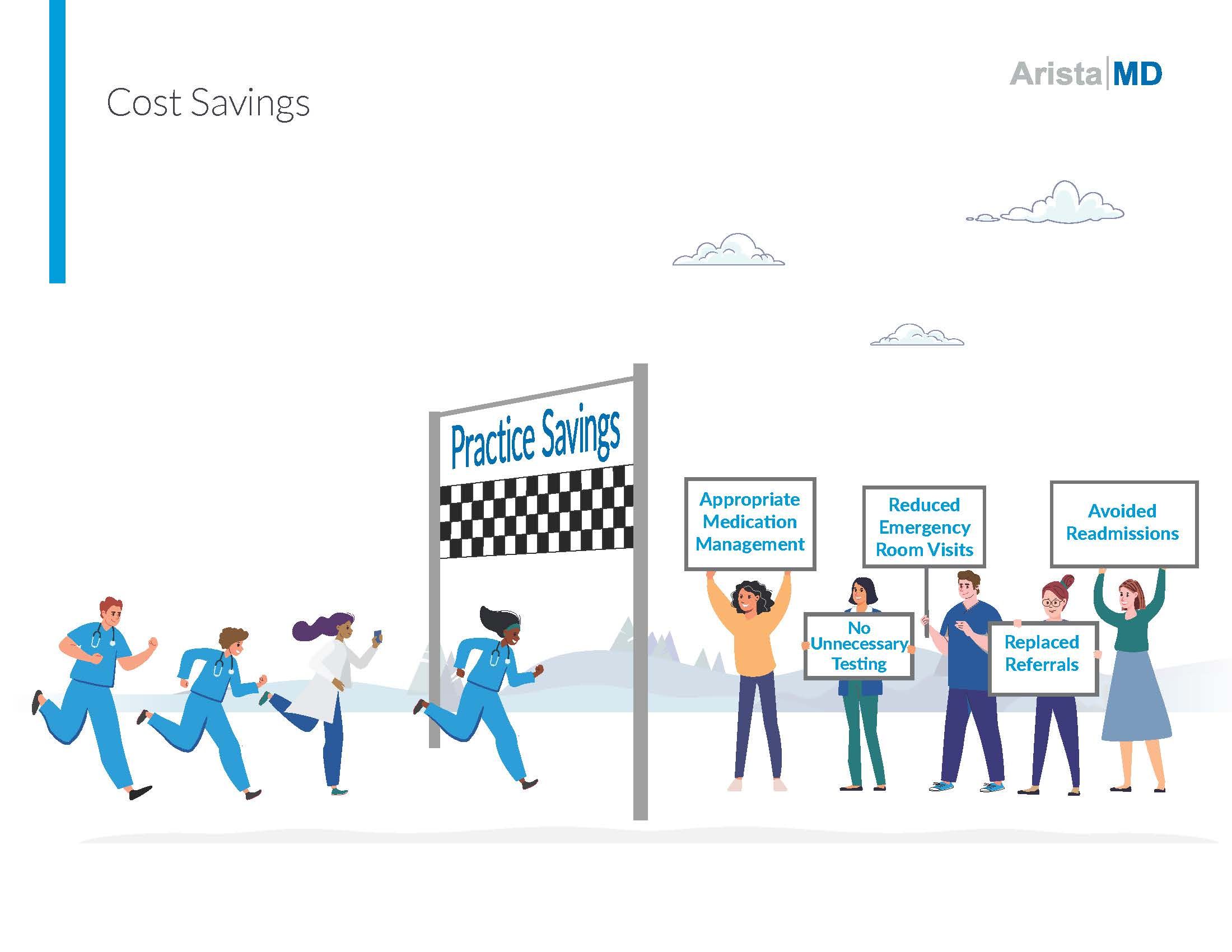eConsults get you to the finish line.
Achieving practice success and exceptional care using eConsults doesn’t have to be a difficult task. See the roadmap to practice success and encourage your team by helping your physicians and staff understand the benefits that an eConsult program can bring to your patients.
Here is a roadmap that can help you launch successfully with the support of your staff. To improve patient access, take a look at the following:
- Patient Benefits
- Barriers to Care & Access to Care
- Clinical Quality and Provider Adoption
- Cost Savings












